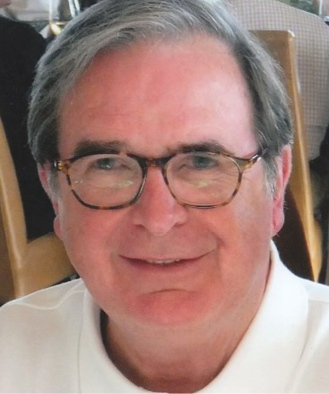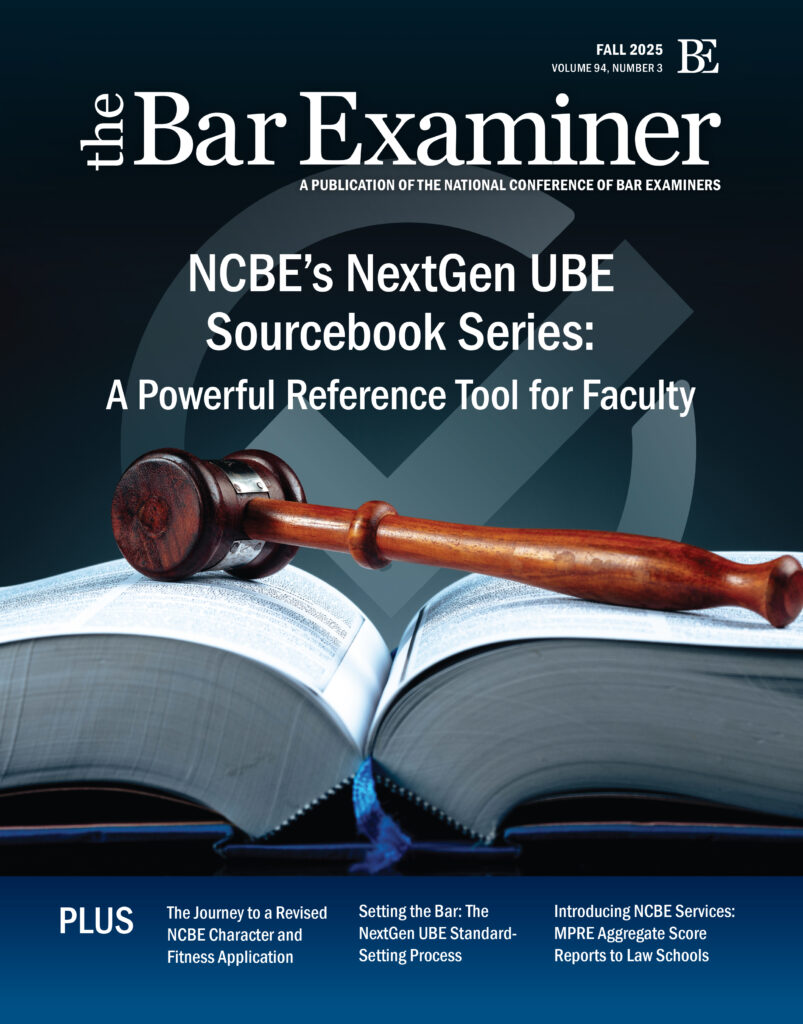This article originally appeared in The Bar Examiner print edition, Spring 2021 (Vol. 90, No. 1), pp. 1–2. By Hulett H. Askew
 I had planned to write my chair’s column on the link between professionalism and fitness to practice law. However, I am writing this on January 12, and the events of last week have altered my plans. Whereas professionalism and fitness to practice are to me complementary, interdependent, and worthy of discussion, that discussion will have to wait until a future issue.
I had planned to write my chair’s column on the link between professionalism and fitness to practice law. However, I am writing this on January 12, and the events of last week have altered my plans. Whereas professionalism and fitness to practice are to me complementary, interdependent, and worthy of discussion, that discussion will have to wait until a future issue.
What we saw on January 6, 2021, was a challenge to our faith in the rule of law, which underlies, and is critically important to supporting, our democratic ideals. We in bar admissions play a critical role in ensuring that the rule of law in this country remains an essential element in the licensing process for the privilege of practicing law and being officers of the Court. The events of January 6 have caused me to focus on what is most important to me, outside of my family, and how I can use my time most effectively to further my goals.
I am a child of the South. Born of privilege, I was pretty much oblivious to the unequal justice in our society during the 1950s and 1960s. I graduated from law school, passed the bar exam, and was licensed in Georgia in 1967. However, I grew up in 1968.
For those of you alive then, you will never forget the assassinations of Dr. Martin Luther King Jr. and Bobby Kennedy, and the protests over the escalation of the war in Vietnam. It was a challenging and depressing year, and it was eye-opening to a young lawyer like me.
I decided that I needed to do more with my life and career to seek to address the access-to-justice issues confronting America. I resigned from the law firm I was working for in Atlanta and went to work for the Office of Economic Opportunity (OEO, the “War on Poverty” agency) in Washington, and it literally changed my life and the arc of my career. I ended up spending the next 22 years as a legal aid lawyer with OEO, the Legal Services Corporation, and the National Legal Aid and Defender Association.
I returned to Atlanta in 1990 to become the executive director of the Chief Justice’s Commission on Professionalism. When Jerry Braun resigned as Director of Bar Admissions in Georgia, the Court appointed me to succeed him as director, also in 1990. Staffing both the Board of Bar Examiners and the Board to Determine Fitness of Bar Applicants was my life and career for the next 16 years. I came to love that work and the people with whom I worked—the justices, the staff, and the board members. The Court was fully supportive of both boards and had remarkable insight in appointing board members who were professionally accomplished and dedicated to the mission of the bar admissions process.
Over the first eight years or so, with the fantastic support of NCBE (Erica Moeser, Jane Smith, Mike Kane, and Susan Case) our board changed how we wrote essay questions and adjusted our grading process and rubrics. During Marva Brooks’s year as chair of the Georgia Board of Bar Examiners, we added the Multistate Performance Test to our test products, we raised the cut score from 260 to 270, and we abolished the Rule permitting third-year law students to take the February exam. (Our motto was “change is good.”) I also came to depend upon members of the Council of Bar Admission Administrators for advice and guidance as it grew and flourished into a supportive professional organization.
Those experiences during my 16 years as Director of Bar Admissions taught me several things. First, there is a direct connection between our expectations for applicants regarding character and fitness (so-called essential eligibility requirements) and the “calling” of professionalism once they become admitted. The question is whether those concepts of professionalism can be applied earlier in their careers, such as in law school and during the admissions process.
Second, the importance of teaching and testing lawyering skills cannot be overstated. The addition of the MPT to our test products improved the exam and sent a message to applicants and law schools about the importance of these skills.
Finally, I also came to believe that the bar admissions process is more than our claim for it—that is, to protect the public by ensuring that the minimum competencies expected of newly licensed lawyers are tested on the bar exam. As stated before, I believe that the licensing process is an integral part of protecting the rule of law in this country. As Naomi Choi, assistant professor of political science at the University of Houston, has written in her definition of the rule of law: “In general, the rule of law implies that the creation of laws, their enforcement, and the relationships among legal rules are themselves legally regulated, so that no one—including the most highly placed official—is above the law.” Applicants for admission must understand and be able to apply those laws in order to promote and enforce them as officers of the Court. We play an important role in making sure that is the case.
It is exciting to me to see that applications to law schools have risen significantly in 2020, most likely in response to the disruptions in our legal and other democratic systems. Lawyers are needed now more than ever to address access-to-justice issues and the societal discord we see all around us—to apply the rule of law.
As bar examiners, administrators, fitness board members, and practicing lawyers, we should all take seriously—as I know that we do—our role in ensuring that the bar admissions process remains fair, is focused on recognized testing principles, and is nondiscriminatory in its design and application. As for me personally, I decided long ago that public service suited me, allowing me to do work that is in line with my values and to make a difference in the issues about which I am passionate. Inclusion, equality, and social justice are high on that list, and NCBE has provided me, late in my career, with a perfect forum for working on and, hopefully, promoting those ideals.
Keep the faith.

Bucky Askew
Contact us to request a pdf file of the original article as it appeared in the print edition.







